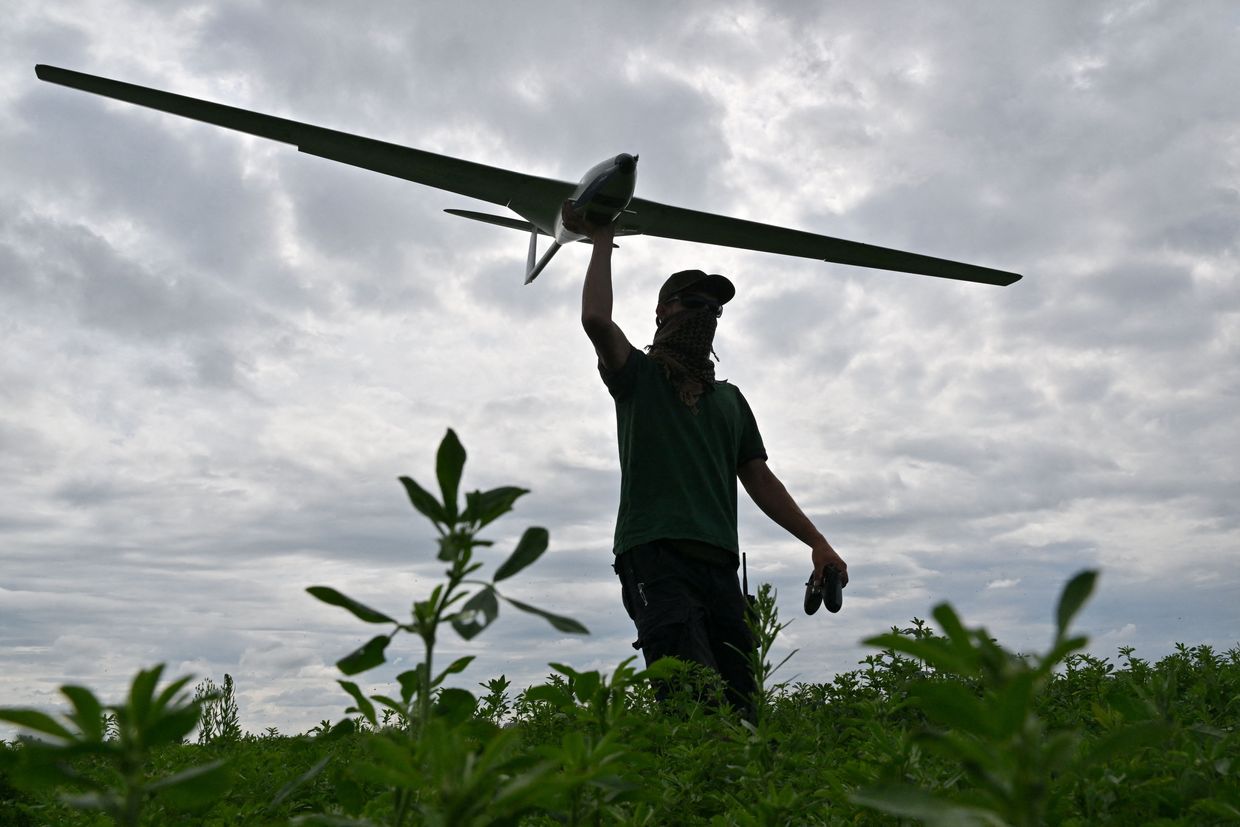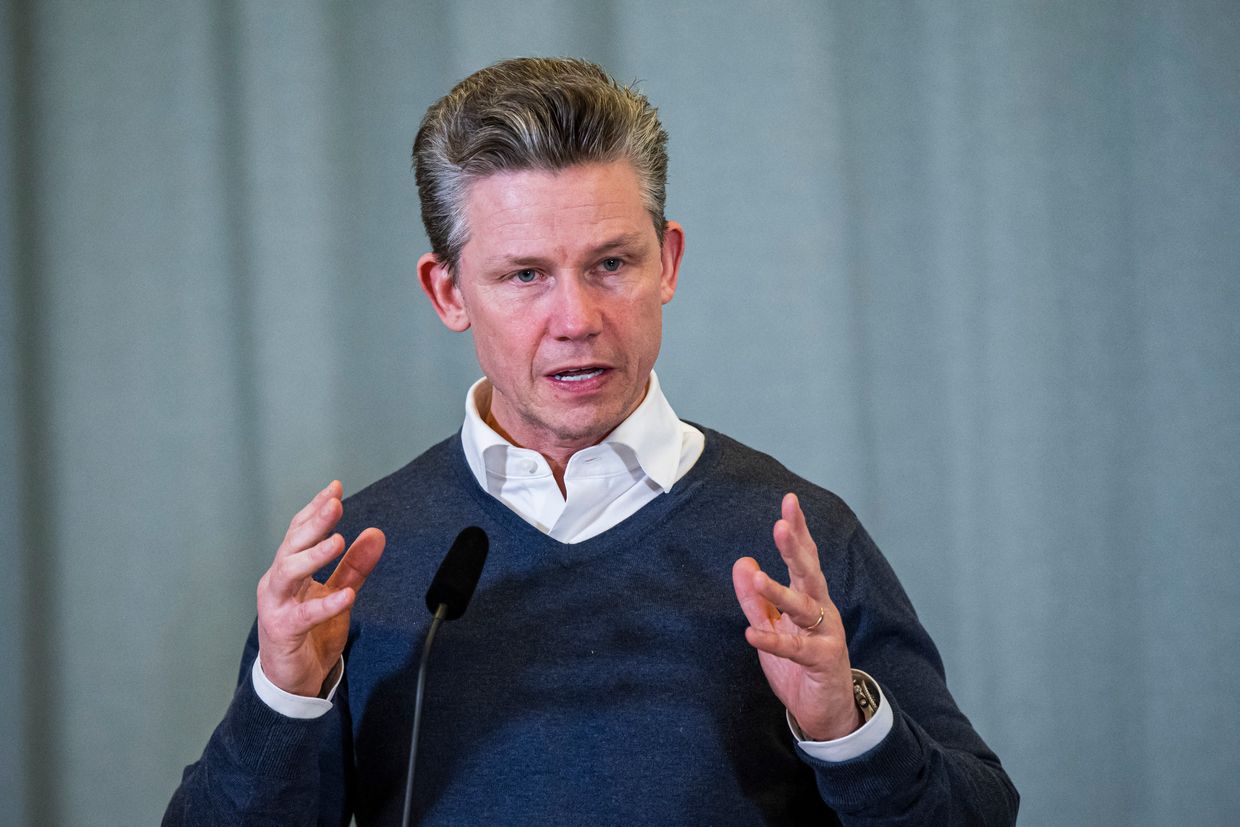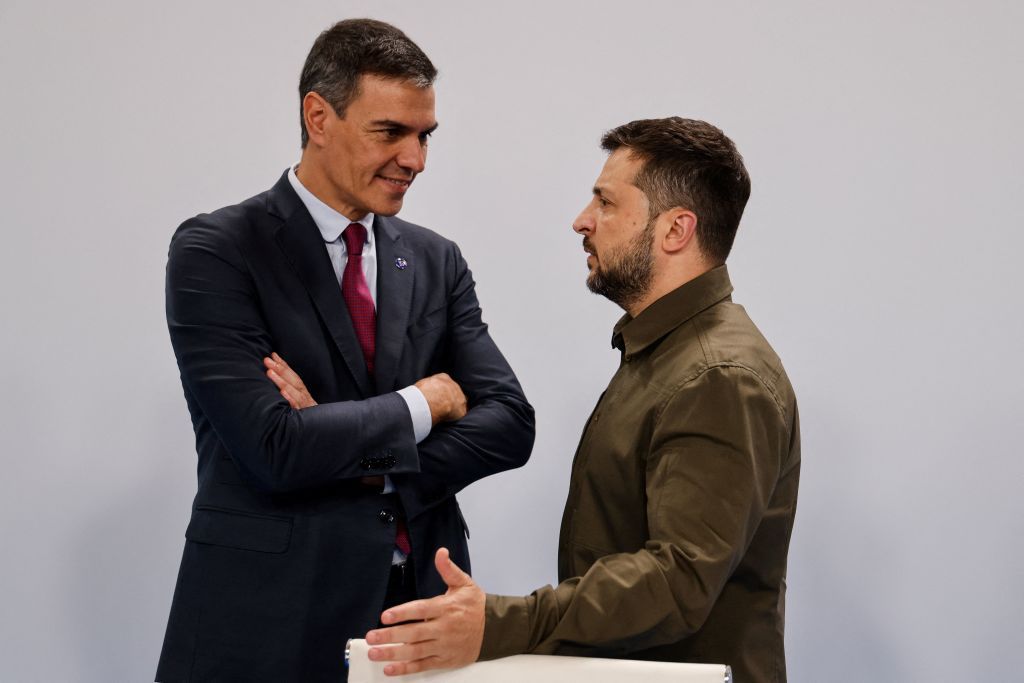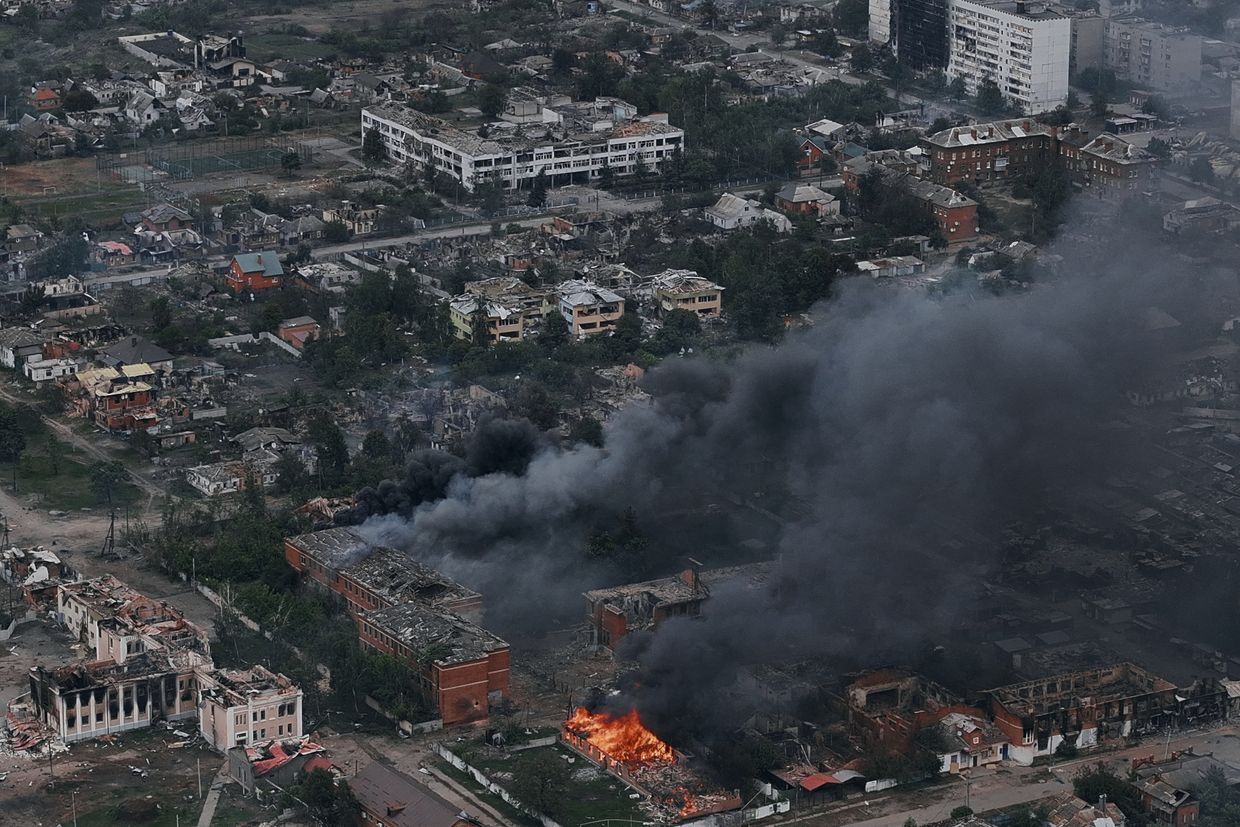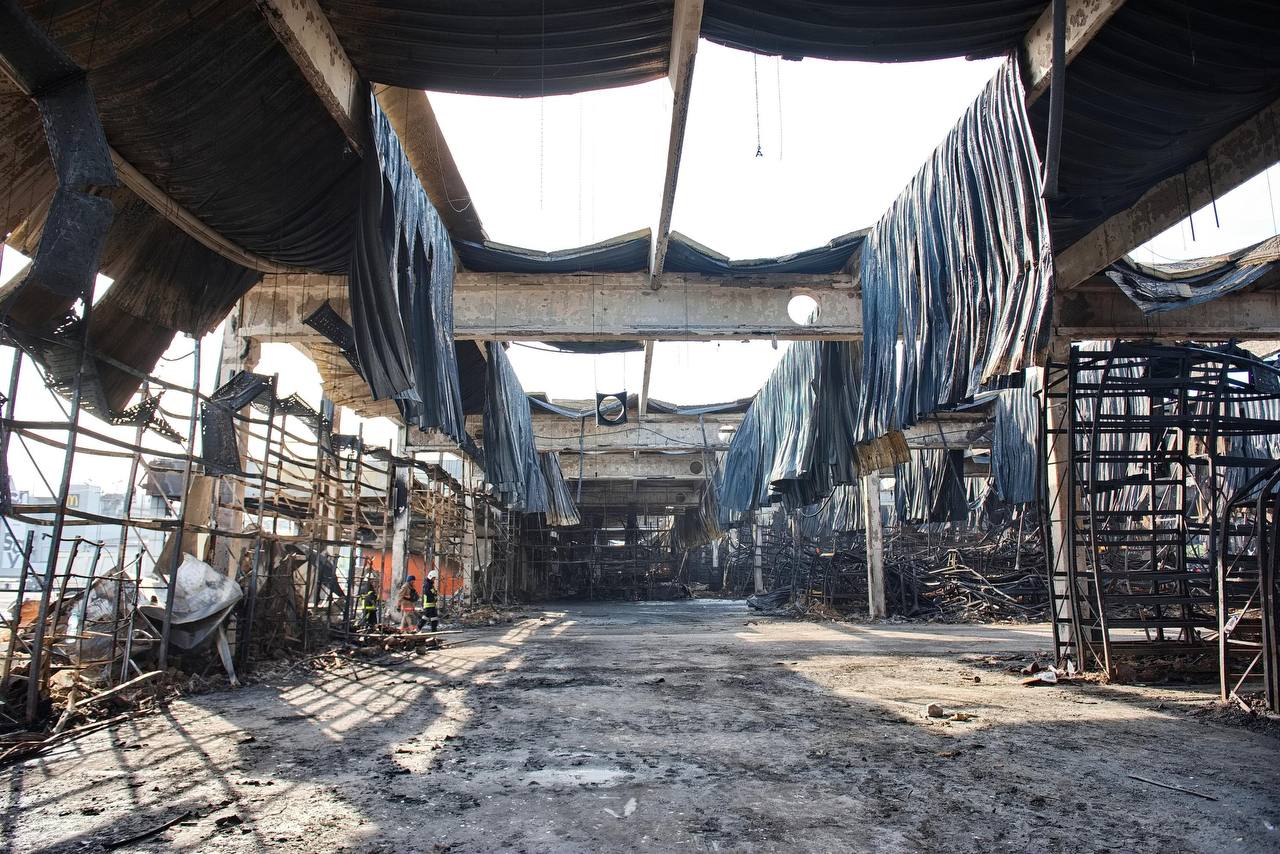Ukraine war latest: Kyiv strikes early-warning radar system 1,800 kilometers deep inside Russia

Key developments on May 27:
- Ukrainian drone strikes Russian early-warning radar 1,800 kilometers away
- France to send instructors to Ukraine to train Ukrainian soldiers, Syrskyi says
- NATO Parliamentary Assembly supports Ukraine's right to hit targets inside Russia using Western arms
- Ukraine, Spain sign bilateral security agreement
- Russia claims capture of 2 villages in Kharkiv, Donetsk oblasts, Ukraine hasn't confirmed
- Russian attack on Mykolaiv Oblast town kills 3, injures 6
A long-range drone operated by Ukraine's military intelligence (HUR) attacked an early-warning Voronezh M radar system in Russia's Orenburg Oblast on May 26, a source in the agency told the Kyiv Independent on May 27.
For the first time since the start of the full-scale invasion, Ukraine attacked facilities in Orsk, some 1,800 kilometers (around 1,200 miles) from the drone's launch location, according to the source.
Russian media claimed on May 26 that a drone fell in the Orsk suburbs, allegedly targeting a military facility. No damages or casualties were reported.

The military intelligence source told the Kyiv Independent that the consequences of the May 26 attack are still being clarified.
Later during the day, Radio Free Europe/Radio Liberty's Schemes project published satellite imagery of the radar system after the attack.
While the low resolution of the footage does not allow to accurately assess the extent of the damage, dark spots visible on May 27 – possibly traces of fire caused by the drone strike – seem to confirm the attack.
Ukraine's military intelligence also struck another Voronezh radar system in the village of Glubokii in Krasnodar Krai on May 23, causing a fire at the facility, according to the source.
The Voronezh radar is an early-warning equipment that provides long-distance airspace monitoring, focusing on ballistic missile and aircraft. Its operational range is up to 6,000 kilometers (around 3,700 miles).
France to send instructors to Ukraine to train soldiers, Syrskyi says
France is planning to send instructors to Ukraine to train the military, Commander-in-Chief of Ukraine's Armed Forces Oleksandr Syrskyi said on May 27 after a call with French Defense Minister Sebastien Lecornu.
The announcement comes after reports that some NATO member states are discussing the possibility of sending military instructors or contractors to Ukraine to train troops and assist with equipment repairs.
Kyiv has asked the U.S. and other NATO countries to help train 150,000 soldiers closer to the front lines, according to the New York Times.
Syrskyi said he had already signed documents "that will allow the first French instructors to visit our training centers soon and see infrastructure and staff."
"I believe that France's determination will encourage other partners to join this ambitious project," the general said, without disclosing further details.
France's Defense Ministry told Reuters that training in Ukraine "is one of the projects discussed since the conference on support for Ukraine" hosted by French President Emmanuel Macron in Paris in February.
"Like all the projects discussed at that time, this track continues to be the subject of work with the Ukrainians, in particular to understand their exact needs," the ministry said.
The U.S. and multiple European allies, as well as NATO Secretary-General Jens Stoltenberg, have distanced themselves from the French president's statement. However, several countries have not ruled out sending troops for non-combat missions, such as training the Ukrainian military.
NATO PA supports Ukraine's right to hit targets inside Russia using Western arms
NATO allies should lift restrictions that prohibit Ukraine's use of Western-supplied weapons against military targets inside Russia, the NATO Parliamentary Assembly said in a declaration adopted on May 27.
Some of the countries that supply the most military aid to Ukraine, namely the U.S. and Germany, are against Ukraine using their weapons to strike Russian territory due to fears this would lead to an escalation of the war.
Other partners, such as the U.K., have said that Ukraine has the right to use Western-supplied weapons to strike targets inside Russian territory.
NATO member states should "support Ukraine in its international right to defend itself by lifting some restrictions on the use of weapons provided by NATO allies to strike legitimate targets in Russia," the declaration said.
"Ukraine must be provided with all that it needs, as quickly as possible and for as long as it takes for it to win."
The declaration was approved by a majority of the 281 lawmakers in the NATO Parliamentary Assembly and received support from NATO Secretary General Jens Stoltenberg, who said that "the right to self-defense includes hitting legitimate targets outside Ukraine."
"Ukraine can only defend itself if it can attack Russia’s supply lines and Russian bases of operation," the NATO Parliamentary Assembly President Michal Szczerba said.
Ukraine has repeatedly said that the restrictions meant Ukraine was unable to attack Russian forces as they were building up before crossing the border into Kharkiv Oblast in the renewed Russian offensive that began on May 10.
Lithuanian Foreign Minister Gabrielius Landsbergis criticized the restrictions on May 20, arguing that the decision was "dominated by fear of Russia" and that Ukraine "must be allowed to use the equipment provided to them so that they can achieve strategic objectives."
German Chancellor Olaf Scholz said on May 26 that Germany gave clear rules to Ukraine prohibiting the use of German weapons on Russian soil and that he sees no reason to change this.

Ukraine, Spain sign bilateral security agreement
Ukraine's President Volodymyr Zelensky and Spanish Prime Minister Pedro Sanchez signed a 10-year bilateral security agreement between the two countries on May 27.
Spain became the 10th country to sign such an agreement, together with the U.K., Germany, France, Denmark, Italy, Canada, the Netherlands, Finland, and Latvia.
The treaties are based on a pledge made by the Group of Seven (G7) countries last July and are designed to help Kyiv fend off Russian forces and deter future aggression.
Under the agreement, Spain will provide Ukraine with the support of 1 billion euros ($1.1 billion) in 2024 and 5 billion euros ($5.4 billion) by 2027, Sanchez said during a press conference.
This year's package will include air defense support to help Kyiv repel Russian aerial attacks, he added.
Spain will also continue to supply Ukraine with modern military equipment, support medical training and prosthetics for soldiers, and strengthen Ukraine's maritime security.
The two countries will deepen cooperation in the defense industry, fight organized crime, and bolster intelligence coopertion. The agreement also covers humanitarian aid, recovery assistance, and support for Ukraine's EU and NATO membership and the country's 10-point peace formula.
The document also addresses sanctions against Russia and mechanisms to compensate for war damages and for bringing the aggressor to justice.
Zelensky arrived in Spain earlier on May 27, announcing the plans to sign a bilateral deal later during the day.
The Spanish newspaper El Pais reported that the new military aid package would include over a dozen Patriot anti-aircraft missiles and 19 German-made Leopard 2A4s. The package would also include Spanish-made weapons.
Russia claims capture of 2 villages in Kharkiv, Donetsk oblasts, Ukraine hasn't confirmed
The Russian Defense Ministry claimed on May 27 that its forces had captured the villages of Netailove in Donetsk Oblast and Ivanivka in northeastern Kharkiv Oblast.
Ukrainian officials have not commented on Russia's claims. The Kyiv Independent could not verify the reports.
Netailove lies less than 15 kilometers northwest of occupied Donetsk. Ukraine's General Staff said on May 27 that fights are ongoing near Netailove, adding that the situation there is "tense."
The crowd-sourced DeepState monitoring site reported overnight on May 27 that Russian forces had advanced near several settlements in Donetsk Oblast and occupied Netailove.
Ivanivka lies around 20 kilometers (12 miles) east of Kupiansk, a town close to Kharkiv Oblast's administrative border with Luhansk Oblast in the east. The Ukrainian military recently said that Russian activity had sharply increased in the Kupiansk sector.
Moscow's troops also recently opened another front in the north of Kharkiv Oblast on May 10, but Kyiv said Russian advances there had been halted.
Russian attack on Mykolaiv Oblast town kills 3, injures 6
A Russian missile attack on the town of Snihurivka in Mykolaiv Oblast on May 27 killed three people and injured at least six, Governor Vitalii Kim reported.
The strike hit a self-service car wash, the governor said. Two of the injured are a girl and a boy aged 17, Kim added.
No further details were provided at the moment.
Snihurivka, a town with a pre-war population of around 12,000, lies 50 kilometers (30 miles) east of the regional center, Mykolaiv, and about 40 kilometers (25 miles) north of the front line.
Mykolaiv Oblast is regularly targeted by Russian strikes due to its proximity to the front lines.
Russian troops also dropped a guided aerial bomb on the city of Kharkiv on May 27, killing a woman and injuring at least 12 other people, local authorities reported.
The industrial area of the Kholodnohirskyi district reportedly came under fire. Russia attacked a local civil enterprise, damaging production facilities, Governor Oleh Syniehubov said.
Moscow's forces also attacked an area near the residential buildings in the Shevchenkivskyi district of Kharkiv, Mayor Ihor Terekhov said. No casualties or damages were reported.
Russian forces launched new offensive operations in the north of Kharkiv Oblast on May 10, exposing Kharkiv and a number of border settlements in the region to heavy attacks.



